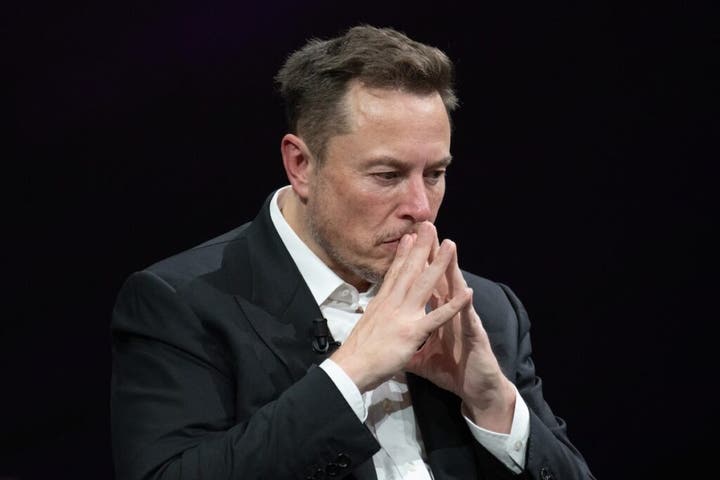
Elon Musk has launched a new political venture—the America Party—with the kind of bravado only the world's richest man could muster. Frustrated by what he calls a "uniparty" system and spurred by a public fallout with President Donald Trump, Musk says he's here to give Americans a real alternative.
But while the announcement made waves on social media and stirred up headlines, the odds of this party becoming a lasting political force are slim to none, according to Grok, Musk’s own artificial intelligence (AI) chatbot.
For starters, the tech billionaire can't run for president—he was born in South Africa, making him constitutionally ineligible. That alone makes it hard to rally a movement around a figure who can't top the ticket. Add to that the brutal reality of America's two-party system: third parties rarely gain traction, let alone win elections. Even with Musk's billions, building a viable party from scratch requires navigating 50 sets of ballot access laws, recruiting credible candidates and establishing a national infrastructure—none of which can be accomplished overnight.
Then there's the charisma gap. Musk may be a tech visionary, but he's not exactly a political unifier. Polls show his favorability is underwater with most voters, and his appeal overlaps heavily with Trump's base—meaning he's more likely to split the right than build a new coalition. History is littered with failed third-party experiments, and unless something changes dramatically, the America Party looks destined to join them.
"It is more likely that the America Party will fail to achieve significant, lasting success than become a transformative force in U.S. politics. The structural barriers of the winner-takes-all electoral system, historical struggles of third parties, and Musk's polarizing persona make sustained success improbable," the AI bot said. "While short-term disruption, like winning a few congressional seats in 2026, is plausible due to Musk's resources and voter dissatisfaction, the America Party faces an uphill battle to overcome entrenched two-party dominance," it added.
10 Reasons Why The America Party May Fail
Here are 10 key reasons why Musk's Party, launched in July 2025, is unlikely to gain major traction or durability in U.S. politics, based on longstanding electoral dynamics and current political realities, according to Grok:
- The Two-Party System Is Structurally Entrenched: The United States follows a winner-take-all format in single-representative districts, which significantly benefits the two dominant parties. Smaller political movements almost never secure seats, as their support can fragment the vote—effectively aiding either Democrats or Republicans. This setup has long suppressed outsider parties since the 1800s.
- Third Parties Have Never Succeeded Before: No alternative party has remained nationally influential since the GOP’s birth in the mid-19th century. High-profile bids—such as Ross Perot's in 1992, which earned 19% of the vote but no electors, and Theodore Roosevelt's failed 1912 comeback—reinforce the historical hurdles.
- Ballot Access Is A Legal Nightmare: Securing access to ballots involves navigating a patchwork of complicated state laws—requiring everything from extensive petition drives to procedural filings. Even with Musk's financial resources, managing a 50-state compliance operation is an enormous administrative and logistical burden.
- Voting For A Third Party May Be Seen As A Waste: Voters often see non-major party support as ineffective in a binary system, prompting them to vote "against" rather than "for" a candidate. This behavior strongly disincentivizes support for new entrants like the America Party.
- Musk's Divisive Public Image: Musk's approval rating dropped sharply—from 50% in late 2024 to 35% by mid-2025—due in part to provocative public comments. While some of his policies (e.g. DOGE) resonate, polling suggests that he himself remains a polarizing figure. Musk's political stances often shift rapidly—from backing Trump to attacking him, from pledging neutrality to launching a party. That volatility may undermine trust among voters and donors.
- Public Feud With Trump: Musk's highly publicized disagreement with Trump—particularly over spending initiatives like the "Big Beautiful Bill"—has cost him support from Trump-aligned conservatives, potentially fracturing his potential voter coalition.
- Vote-Splitting Consequences: By targeting voters disenchanted with the GOP, especially independent and male conservatives (Quantus Insights reports 57% openness among Republican men), Musk's movement could split that bloc—making it easier for Democrats to win narrowly contested races.
- No Clear Ideological Identity: As of July 8, 2025, there has been no formal filing with the Federal Election Commission or a comprehensive policy platform. The absence of strategic direction—combined with Musk's track record of overpromising—raises doubts about long-term viability. Beyond fiscal hawkishness and anti-establishment rhetoric, the America Party lacks a coherent platform. Voters don't rally around vibes—they need vision. So far, the America Party's message is centered on Musk's personal grievances—especially fiscal policy and government "waste." Without a broader, coherent platform, it may fail to resonate beyond his fanbase.
- Lack of On-the-Ground Mobilization: Establishing a serious political force requires grassroots engagement, field organizers, and state-level networks. So far, Musk seems to be relying on personal brand recognition and social media influence, which may not convert into real-world votes or turnout. There's no evidence of grassroots chapters, field offices, or candidate recruitment. A party without people on the ground is just a brand.
- Conflicting Interests and Mixed Messaging: Critics, including Trump himself, have pointed out the contradiction between Musk's anti-government rhetoric and his companies' dependence on public contracts and subsidies (e.g. NASA partnerships, EV tax incentives). This contradiction could erode confidence among would-be supporters.
Taken together, these obstacles create a steep uphill climb for the America Party, making it unlikely to achieve nationwide relevance or electoral staying power in the current U.S. political system.
Read Next:
Photo: Shutterstock







